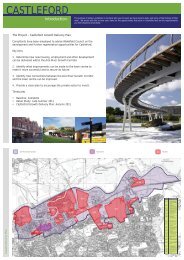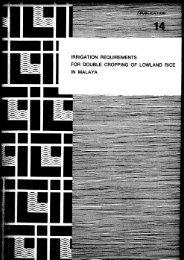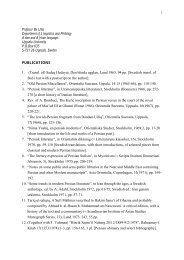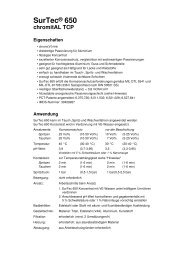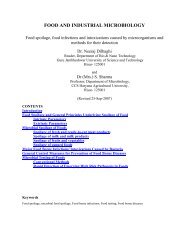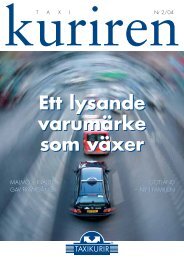On the Future of Indigenous Traditions - Munin
On the Future of Indigenous Traditions - Munin
On the Future of Indigenous Traditions - Munin
You also want an ePaper? Increase the reach of your titles
YUMPU automatically turns print PDFs into web optimized ePapers that Google loves.
CHAPTER FIVE: CONCLUSION<br />
5.1. Basic issues in a broader spectrum<br />
Special provisions in <strong>the</strong> Indian Constitutional and special laws meant to protect <strong>the</strong><br />
interests <strong>of</strong> minority, lower caste groups, <strong>the</strong> Adivasis and o<strong>the</strong>r less privileged<br />
sections in <strong>the</strong> country, in principal, give a basis for protection and privileges <strong>of</strong> <strong>the</strong>se<br />
sections. <strong>On</strong>e basic issue here that arises for <strong>the</strong> Adivasis in <strong>the</strong> modern state is a<br />
question, why <strong>the</strong>y should have <strong>the</strong> said privileges and special rights. This comes as<br />
an argument from those sections on <strong>the</strong> o<strong>the</strong>r side who feel <strong>the</strong>ir democratic rights and<br />
principal <strong>of</strong> equal citizenship rights given in <strong>the</strong> Constitution are being violated. As it<br />
is seen in <strong>the</strong> case <strong>of</strong> Chatra Yuva Sangharsh Samiti, <strong>the</strong> Jharkhand Pradesh<br />
Panchayatiraj Adhikar Manch (JPPAM) and o<strong>the</strong>rs with <strong>the</strong>m in Jharkhand argued<br />
against Adivasis’ claiming for <strong>the</strong>ir special rights in <strong>the</strong> state. (See chapter three)<br />
Based on <strong>the</strong> same line <strong>of</strong> argument as above, <strong>the</strong> issue <strong>of</strong> indigenousness as against<br />
<strong>the</strong> non-indigenous or non-Adivasis in <strong>the</strong> case <strong>of</strong> Jharkhand has caused social and<br />
political tensions both in history and in <strong>the</strong> recent years. For example, on <strong>the</strong> regional<br />
level a certain number <strong>of</strong> seats are reserved in jobs, education, Panchayats -village<br />
council, seats in state legislation etc. for groups claiming <strong>the</strong>ir domicile here.<br />
However, if we observe <strong>the</strong> conflicting areas between indigenous or Adivasis versus<br />
non-Adivasis, issues in this context are more serious and larger. They are long,<br />
drawn-out realities, reflected in historical struggles <strong>of</strong> <strong>the</strong> people obtaining and<br />
practicing certain levels <strong>of</strong> autonomy and governance in <strong>the</strong>ir own community and<br />
social affairs. It is also observed that <strong>the</strong> modern state is reluctant to enforce <strong>the</strong>se<br />
constitutional protective measures and a few privileges even with slightest oppositions<br />
to <strong>the</strong>m by <strong>the</strong> anti-Adivasi sections. The Adivasi interest and its representation on<br />
different fronts also becomes an issue among <strong>the</strong>m in <strong>the</strong> process, which includes<br />
different perspectives including <strong>the</strong> modern vs. traditional approaches: <strong>the</strong> traditional<br />
customary institution <strong>of</strong> <strong>the</strong> Adivasis on one hand and <strong>the</strong> Jharkhand Panchayti Raj<br />
Act, a representative <strong>of</strong> <strong>the</strong> modern state system on <strong>the</strong> o<strong>the</strong>r.<br />
97



